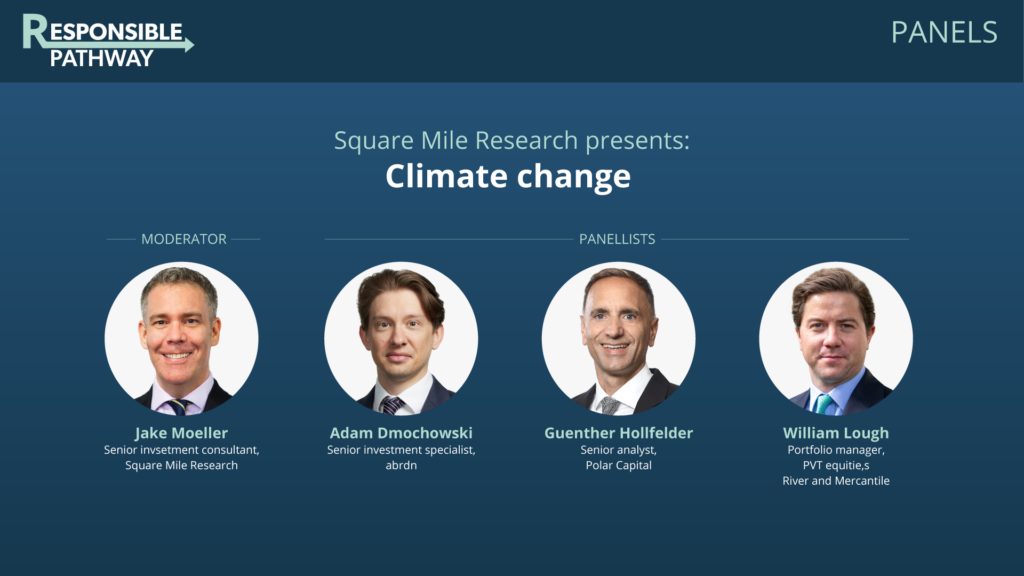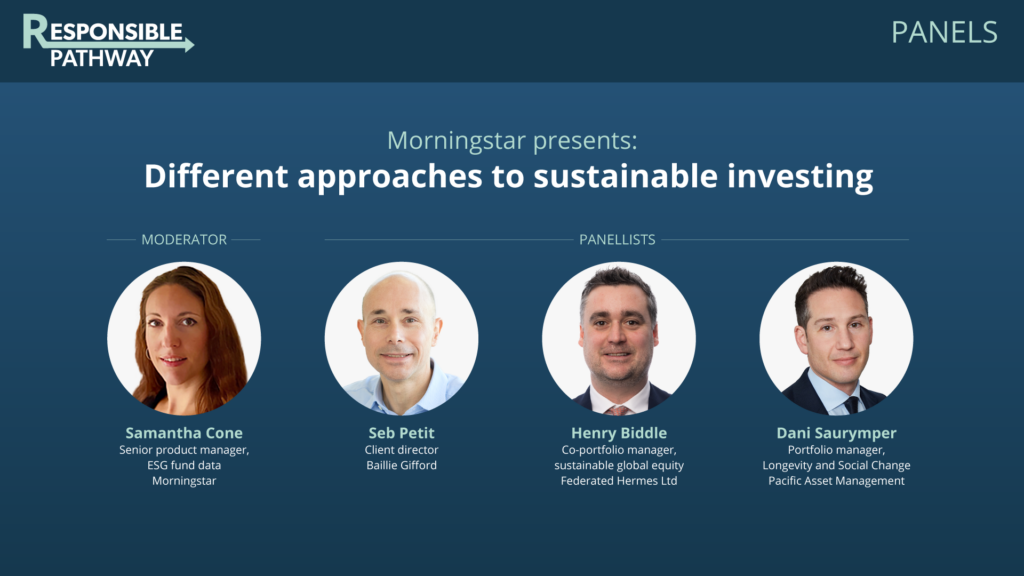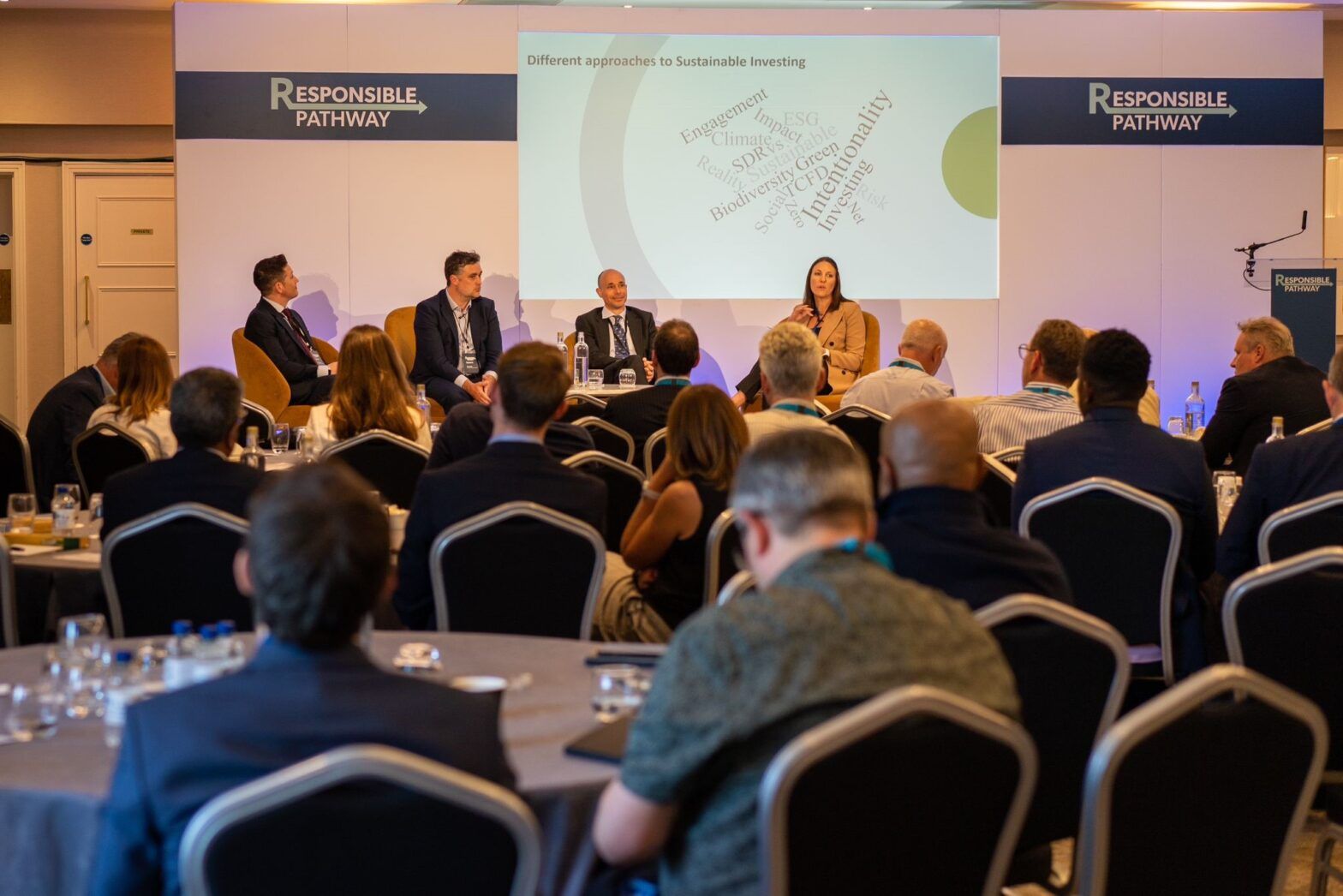Advisers at last week’s Responsible Pathway event heard about the various approaches to engagement and the red flags to look out for during the first two panel sessions.

In the opening panel, moderated by Square Mile’s senior investment consultant Jake Moeller, the panellists reflected on the world’s current global warming path with Moeller concluding: “You heard it here first: the dream of 1.5 degrees is dead.”
Looking specifically at the investment industry engagement William Lough, portfolio manager at River & Mercantile flagged some concerns around the claims being made.
“Asset managers talk about engagement a lot and the level of engagement has been inflated significantly as it is counted as every time they talk to the company. But we need these to be targeted quality conversations, not just box ticking,” he said.
Adam Dmochowski, senior investment specialist at abrdn, agreed: “Engagement should be done holistically. ESG factors will drive the business regardless of whether you are holding equity or credit.”
Turning to engagement with miners, Lough told advisers 4% of global emissions come from the sector.
The panellists discussed mining being a trickier sector to engage with but “we will not have an energy transition if we simply stop mining”, Lough said.
Guenther Hollfelder, senior analyst at Polar Capital, added his team focus on one area: “There are less transparent sources of mining in some parts of the world. For us, at the moment we are focused on environmental engagement not yet human rights [with miners]”.
Lough admitted the human rights aspect is much more challenging: “I don’t think we can exclude the possibility of human rights violations in holdings and I don’t think we will ever be able to do so with full conviction.”

In the second panel of the conference, led by Samantha Cone, senior product manager, ESG fund data at Morningstar Sustainalytics, the panellists discussed how companies are considering ESG as a threat to profits, and how to engage with those that aren’t.
“Over the next eight years companies will face ESG challenges whether that is around water or the climate. It is important to understand the risks,” said Seb Petit, client director at Baillie Gifford.
“ESG will become a cost in profit loss statements – we aren’t there yet but we need to get ready for that. The cost of emissions will have an impact.”
The panellists also explored the approaches to engagement in the industry sharing some of the key questions their teams ask holdings’ management.
Dani Saurymper, portfolio manager at Pacific Asset Management, explained: “We want to keep companies honest. Two years on from now, where are they going to be on the targets they have set themselves? How will they deliver?
“We need to acknowledge companies are on a journey and don’t know about their weaknesses. You may suffer as a shareholder when they find these out but when more attuned to the weaknesses they can progress.”
Henry Biddle, co-portfolio manager within the sustainable global equity team at Federated Hermes, said the EoS team at the group spoke to all businesses they held post-Covid to ask them how they were helping lower paid employees.
“We get more traction on the social side – it tends to be a longer discussion to get them to change how they are operating strategically [and address the environment].”
However, the group does ask for science-based targets and if these are set for 2050, “we push them to bring that forward to 2030”, Biddle added.
Moderator Cone highlighted it can be difficult for advisers to understand how each group engages, and what engagement truly means.
“There are lots of ways groups can pretend to be engaging seriously and not really be doing it, there is a question of trust. Be aware of glossy booklets that talk about 500 meetings,” warned Petit.
He also highlighted the average holding period has shortened with investors now investing in companies for less than two years.
“The incentive to change or influence a company for those investors is different to those who are holding a company for 10 years. These things cost money; investors are not going to push hard for that if they only plan to hold for less than three years.”
For more on Responsible Pathway, check out ESG Clarity’s coverage next week








